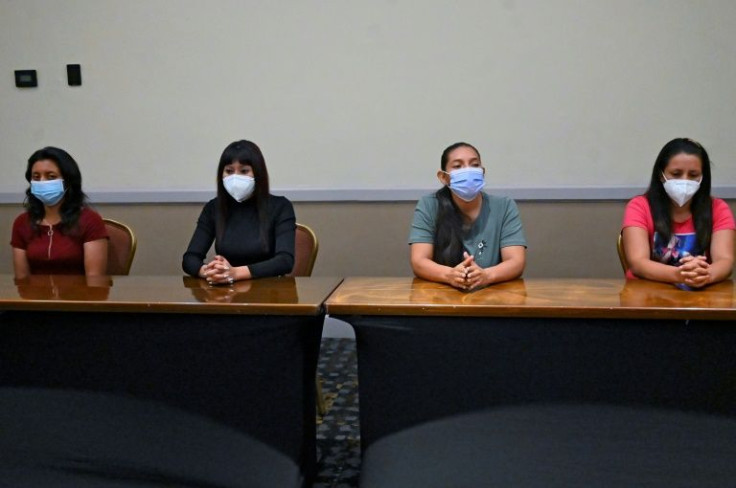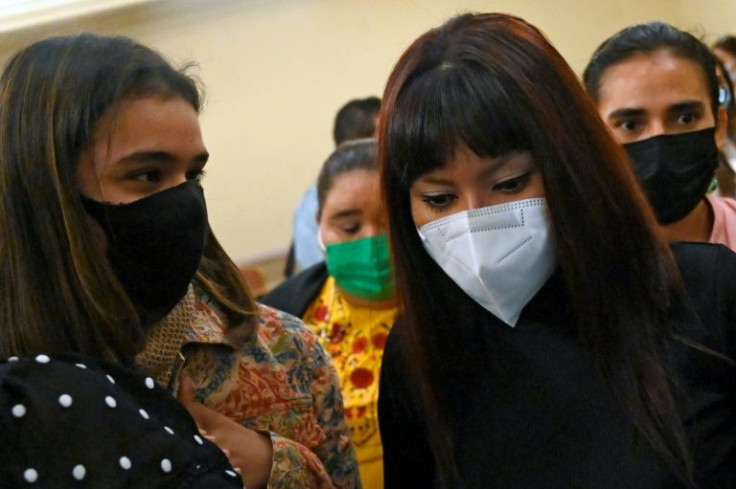'I Lost My Youth': Women Jailed For Miscarriages In El Salvador
Kenia was 17 when, she says, she had a miscarriage after a fall and was sent to jail on suspicion of having had an abortion in El Salvador.
Nine years later, she is out after receiving a reprieve, but feels like she was robbed of her youth in a country with among the world's strictest abortion laws.
She was sentenced to 30 years in prison.
"I was deprived of my freedom for such an unjust reason," Kenia said this week at a press conference with three other women who were similarly punished.
"I lost my youth, I lost my family, all my aspirations were taken away from me," she said, in tears.

The four women, who wore face masks throughout the briefing, gave their real first names but withheld their surnames to avoid being further "stigmatized."
After her fall, Kenia recalled, "the last thing I remember seeing was lots of lights... I was in hospital on a stretcher and there were policemen guarding me and taking pictures of me."
One policeman told her he would make sure that she would "rot in prison" and "that is what happened," she said.
Kenia is one of 62 women to have had their "abortion" sentences commuted since 2009, thanks to the efforts of activist groups, said one such campaigner, Sara Garcia.
Ten remain behind bars, however, and two are still awaiting trial.

El Salvador has had an outright ban on abortion since 1998, even in cases of rape or if the health of the woman or fetus are in danger.
Terminating a pregnancy can send a woman to jail for up to eight years, but Salvadoran judges often instead find women guilty of "aggravated homicide," which is punishable by up to 50 years in prison.
Many women are prosecuted after seeking medical help for complications in pregnancy, suspected of having attempted an abortion.
The law gives rise to "stigma and prejudice and creates conditions for women to be persecuted, denounced, prosecuted and unjustly imprisoned," said Morena Herrera of the ACDATEE abortion rights group.
Elsy, 38, was recently freed after "ten difficult years in prison" during which she was separated from her son.
Evelyn, 34, spent 13 years behind bars.
"This law is unfair," Evelyn said at the press conference. "We are considered criminals because we are women."
Karen, 28, recounted that she fell ill at home and woke up "in hospital, cuffed to a stretcher."
Even as a newly-free woman, she said she felt judged in El Salvador and regularly received "dirty looks."
"It is important to obtain the freedom of all women unjustly imprisoned, but we must also ensure that there are no more women reported at public hospitals," said Herrera.
© Copyright AFP {{Year}}. All rights reserved.





















